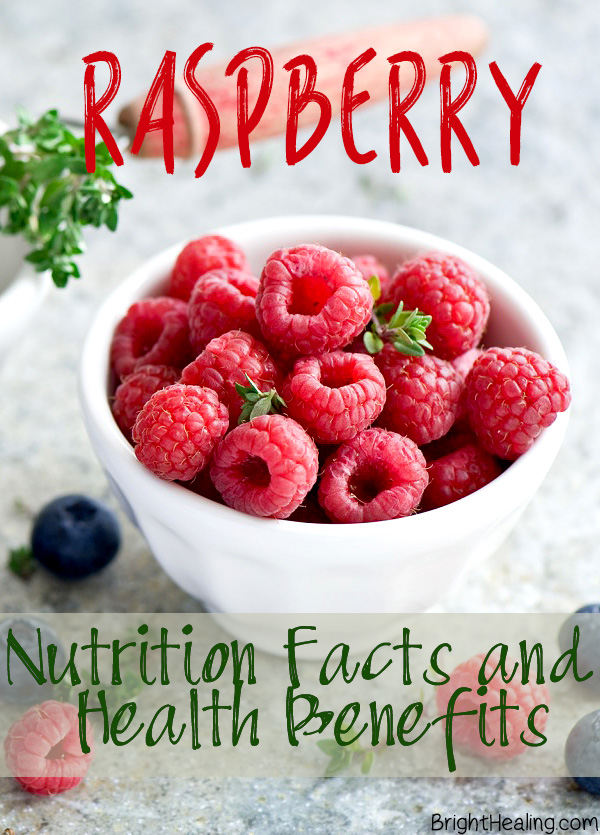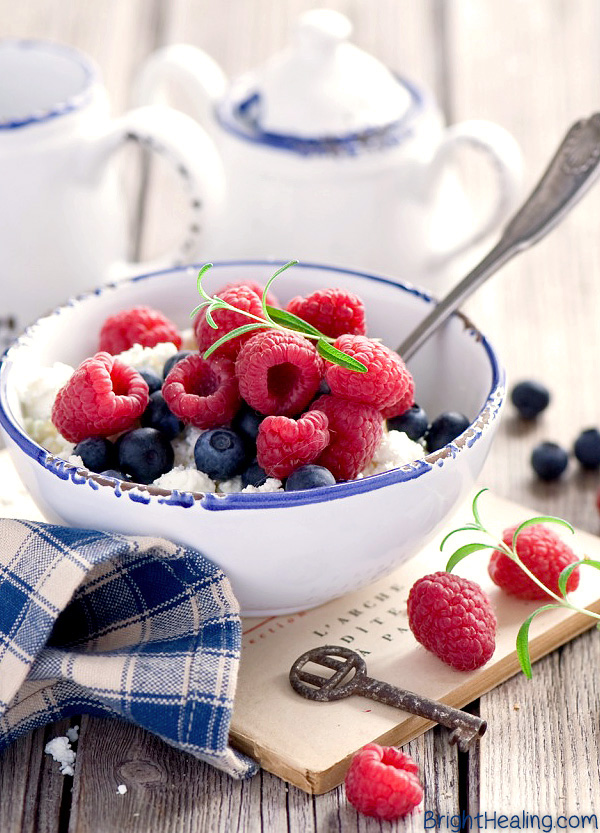The vibrant red-coloured, exquisite and delicate raspberry is a powerhouse of innumerable health benefits. The fruit which is a rich source of nutrients, minerals and vitamins, when included in your daily diet can help lower risk of cancer, obesity, cardiovascular diseases and even enhance fertility. It takes care your skin while aging, protect you from sun rays. It is the fruit which can be frozen without losing its nutritive value. Raspberry with botanical name Rubus idaeus belongs to Rosaceae family.
Helps Lose Weight
Raspberries are low in fat and calories and high in fiber content, which makes them an excellent fruit to be included in your diet plan. The low-energy-density food helps provide larger portions for fewer calories. Raspberries make you feel fuller for long as high-fiber foods take more time to get digested. The insoluble fiber helps keep the body regular and the soluble fiber is known to lower blood cholesterol, which also promotes weight loss.
A cup of fresh raspberries contains about 1.5 g of protein, 8 g of dietary fiber, and 14.7 g of carbohydrates. Cholesterol-free, low in fat and sodium, and weighing in at a modest 64 calories per cup, raspberries are a good choice for dieters. The generous amount of fiber they provide — with one cup supplying one-third of the daily recommended value for adults — can help speed elimination and possibly promote weight loss; their natural sweetness may satisfy cravings for less wholesome foods.
Increases Immunity and Slows Down Ageing
Raspberry is a rich source Vitamin C. Vitamin C increases general immunity to fight cold, flu, infections and such other common diseases and conditions. Vitamin C is a rich antioxidant agent and highly effective in purifying and cleaning our blood and cells which makes the immune function strong. It gets rid of the free radicals produced in our body by certain molecules on exposure to oxygen.
These radicals can damage the cells and our DNA structure if not controlled and cleaned out. The formation of free radicals is natural and is taken care of by the anti-oxidants produced in the body by the food that we consume. Other than Vitamin C, the anti-oxidant property of Raspberries is owing to phenols and anthocyanins in them.
Antioxidant Benefits
Raspberries are extremely high in various antioxidants, which can help fight aging and slow cancer growth by scavenging destructive free radical molecules in your body. In addition to vitamin C — a potent antioxidant in its own right — raspberries contain antioxidant carotinoids, ellagic acid and quercetin. According to the Berry Health Benefits Network, The ORAC scale — which measures the antioxidant potential of substances — places raspberries at a very respectable 24 umole/TE/g. The BHBN notes that this is roughly equivalent to the ORAC capabilities of blueberries, themselves renowned for their antioxidant abilities.
According to a latest research eating raspberries can even help enhance fertility in both men and women. The high levels of Vitamin C and magnesium are very much essential for male and female fertility. The antioxidants help protect sperm, promote conception and reduce the risk of miscarriage.
Raspberry Prevents Cancer
In a new research on animals, it has been found that raspberry has the features to protect from cancers. Eating of raspberry inhibit the growth of cancer cells due to specific antioxidants and has more antioxidants than many other fruits. The presenece of antioxidants such as anthocyanins, carotenoids, ellagic acids, quercetin, gallic acid and catechins are very useful against cancer. They engulf the free radicals thus slow down the process of cancer formation cells. Anthocyanin is related with reducing the risk of certain cancers. Ellagic acids are effective too in preventing of cancers.
Helps Fight Depression and Other Mood Disorders
The fruit is a rich source of Vitamin B and folic acid. A handful of raspberries can give your mood an instant lift.
Raspberry for Heart Diseases
Raspberry has many benefits for cardiovascular diseases. A study conducted at Xinjiang Medical University, Urumqi, China had shown that raspberry has protection against cardiovascular diseases due to presence of phenolic compounds. Salicylic acid content in raspberry has shown protective effects on heart diseases just like as aspirin. Raspberry contains potassium that helps to regulate heart rate and blood pressure, on the other hand, the presence of little amount of sodium strengthens functions of potassium. Thus, the fruit is beneficial in diseases like heart diseases, atherosclerosis, hypertension and blood pressure.
Storage
Since raspberries perish so quickly, care needs to be taken for proper storage. Remove the berries from the container and throw out any bruised or moldy ones. This will prevent them from contaminating the others. Place the raspberries back into the container unwashed and store in the refrigerator for up to two days.
Red Raspberries can be stored in the freezer for up to a year. To freeze raspberries, wash them and use a paper towel to gently pat dry. Next, spread the raspberries out on a cookie sheet making sure not to crowd the berries. Transfer the cookie sheet into the freezer and let them freeze for about an hour. Once the berries have frozen, place them into a freezer bag. You can add lemon juice to the berries to help preserve their color.

